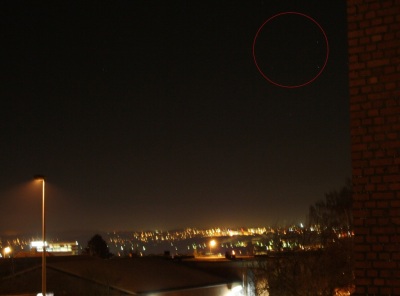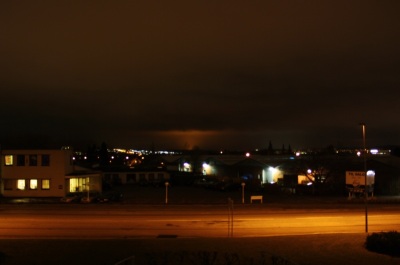If you don't live in a larger town or city your night sky will be almost black and 100s of stars and nebulae will be visible. You might even be able to see the Milky Way. To some degree you'll be able to see a sky like the picture below.
Picture from astropix.com
As the size of the city grows you'll be able to see less and less of the night sky because the lighting in the city will be reflected off of the sky. You'll usually see it as a yellow or white glow on the sky if you live in or near the city or you are observing the sky over the city beyond the horizon.
In addition the more moisture is in the air the worse it gets as the water reflects the light back even more than the air does on its own.
The above picture links to a page on astropix.com discussing light pollution and what you can do to avoid it when taking pictures of the sky (with examples of different levels of light pollution).
The Flickr user jpstanley uploaded an amazing comparison between the sky with no light pollution (top) and heavy light pollution (bottom). The picture really demonstrates just how much of the sky us city dwellers miss.
Click the image to go to Flickr and see the much larger version
Where I live
Where I live a clear night like tonight (where there are no visible clouds) looks like the picture below on a 5 second exposure. It's not really that bad today, but this is as clear as it gets.
I've marked some of the visible stars with a circle but as you can see even after 5 seconds not that many stars are visible.
On a mildly cloudy night it looks like pictured below. This is a 2.5 second exposure and as you can see the entire sky has this annoying yellow glow to it. In the background some small city is lighting up the horizon like a huge floodlight.
This is why I can't really use my telescope that much and why I can't get clear pictures of anything in the sky. At least until I move out of this city in about 3 weeks.
Oh, light pollution how I hate thee.




0 comments:
Post a Comment